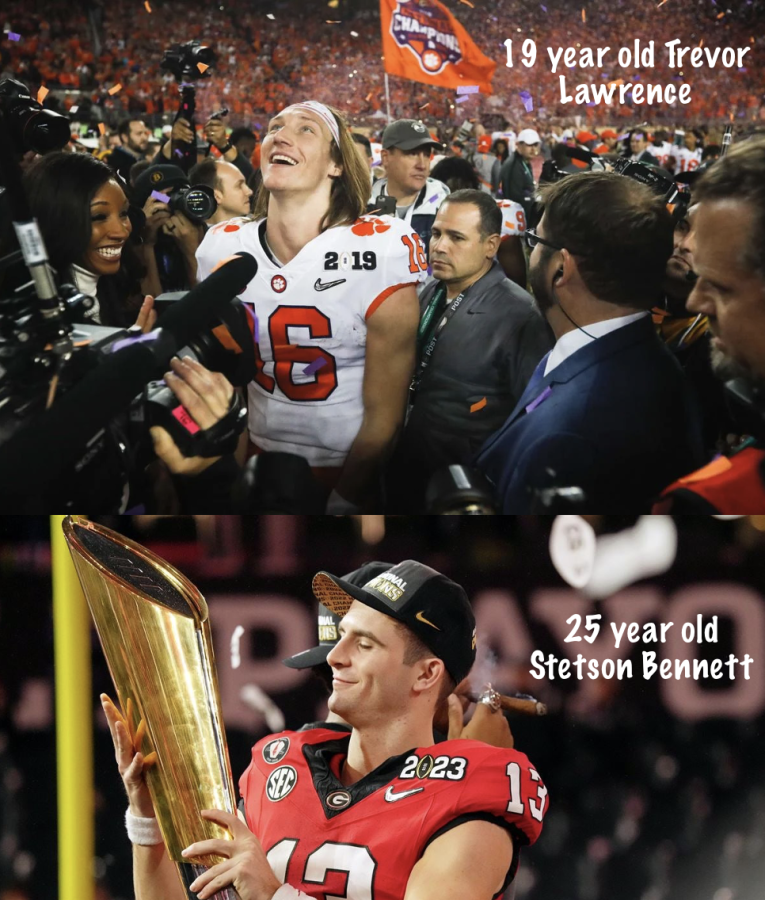Old Enough for the Pros
NCAA athletes – too old to ethically play among younger college athletes?
Georgia’s hero, Stetson Bennett, wins his second national championship with the Georgia Bulldogs in his seventh season with the NCAA.
February 8, 2023
The National Collegiate Athletic Association, or NCAA, governs college athletics in the United States. It sets standards for college eligibility and regulates competition in various sports. One of the key eligibility criteria is age. According to NCAA rules, a student-athlete must be no older than 21 years old to compete in college sports. However, this age limit has been the subject of debate and controversy in recent years. The main argument for the age limit is that it helps maintain a level playing field for student-athletes. College sports are designed to be amateur and for students who are pursuing their education. By setting an age limit, the NCAA ensures that student-athletes are of a similar age and that they have not been professional athletes before. This helps maintain the integrity of college sports and ensures that the focus remains on education and amateur competition.
According to NCAA.org, “Student-athletes are allowed up to five years of eligibility and athletically related financial aid.”
However, some argue that the age limit is too strict and excludes many talented athletes who may have taken a different path to college. For example, some student-athletes may have served in the military or taken time off to work or travel before enrolling in college. These athletes may be older than 21, but still have the desire and ability to compete in college sports.
Daniel Stephens (12) often watches college football games and feels that the disparity of age in players this year was worse than in previous seasons.
“There should definitely be an age cap to how old college athletes can be to remain eligible for their sport, because guys like Stetson Bennett and Hendon Hooker are 25 years old playing against people five years younger than them,” Stephens said.
Similarly, Peyton Naylor (12) isn’t a fan of the college eligibility rules because they take away opportunities for younger kids to go play for the school of their dreams since scholarships can be limited.
“I will always respect the hard work and commitment that these players have put into the sport they love. However, despite the difficult times of the pandemic. I don’t like how some players are in their seventh year, since they have reached a level of maturity that should now have them performing in the pros,” Naylor said.
There have been several recent cases where student-athletes have been declared ineligible to compete in college sports because they were deemed too old. This has led to a great deal of frustration and disappointment among these athletes and their supporters. In some cases, student-athletes have taken legal action against the NCAA, challenging the age limit as discriminatory and a violation of their rights.
Despite these challenges, the NCAA has held firm to its age limit. The organization has stated that the rule is in place to ensure that college sports remain amateur and that student-athletes are of a similar age. However, the NCAA has also indicated that it is open to reviewing and potentially revising the rule in the future if necessary.




